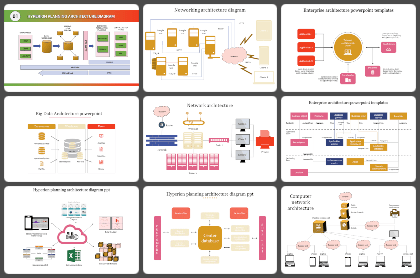how to pitch a game to publishers? Pitching a game to publishers can be a daunting and intimidating process, but it is a crucial step for game developers who want to bring their ideas to life. If you have a game idea that you’re passionate about, here are a few tips to help you successfully pitch it to publishers.

Contents: How to pitch a game to publishers?
1. Research potential publishers.
Before you start pitching your game, it’s important to do your research and identify potential publishers that might be interested in your game. Look for publishers that have experience publishing games in your game’s genre, and read up on their submission guidelines and requirements. This will help you tailor your pitch to the specific needs and interests of the publisher you’re targeting.
To research potential publishers for a game, you can take the following steps:
- Start by making a list of publishers that have experience publishing games in your game’s genre. You can do this by searching online for publishers in your genre, or by looking at the credits of other games in your genre to see who published them.
- Once you have a list of potential publishers, visit their websites to learn more about their company and what types of games they typically publish. Look for information about their submission guidelines and requirements, and make sure your game fits their criteria.
- Reach out to other game developers who have experience working with the publishers on your list. Ask them about their experiences and whether they would recommend the publisher. This can give you valuable insights into what it’s like to work with the publisher and whether they would be a good fit for your game.
- Attend industry events and conferences where you can meet and talk to publishers in person. This can be a great way to make connections and learn more about the publishers on your list.
- Consider joining a game development community or association where you can connect with other game developers and learn about publishers from their experiences.
To ensure the success of your game, it is vital to prioritize publishers who have extensive experience within the specific genre of your game. To ensure a seamless collaboration, thoroughly familiarize yourself with their submission guidelines and requirements. Additionally, seek invaluable insights from fellow game developers who have had the privilege of working with these publishers. Every aspect of your research will contribute to finding the most suitable publisher for your game, catapulting it towards success. By doing your research, you can identify the best publishers for your game and increase your chances of success when pitching your game to them.

2. Prepare a pitch deck.
A pitch deck is a presentation that outlines your game concept and provides key information about your game. Include your game’s premise, target audience, and gameplay mechanics in addition to concept art, screenshots, or other visual aids that will better illustrate your game. A well-designed pitch deck will help grab the attention of publishers and give them a better sense of what your game is all about.
To prepare a pitch deck for a game, you can take the following steps:
- Start by outlining the key information about your game, including its premise, target audience, and gameplay mechanics. This will help you organize your thoughts and make sure you cover all the important points in your pitch.
- Create a presentation using slides or other visual aids to illustrate your game’s concept and features. This could include things like concept art, screenshots, or gameplay footage. The goal of your pitch deck is to grab the attention of publishers and give them a better sense of what your game is all about.
- Make sure to highlight the unique features and benefits of your game. This could include things like innovative gameplay mechanics, a unique art style, or a compelling storyline. Publishers are looking for games that offer something new and different, so make sure to emphasize the aspects of your game that make it stand out.
- Keep your pitch deck concise and to the point. Publishers are often busy and may not have a lot of time to review your pitch, so make sure to present your game’s key points in a clear and concise manner. Avoid including too much text on each slide, and focus on using visual aids to convey your game’s concept and features.
- Practice your pitch. Before you meet with publishers, practice presenting your pitch deck to ensure that you are comfortable with the material and can deliver it confidently. Consider rehearsing your pitch in front of a mirror or recording yourself to see how you come across and identify any areas for improvement.
To create a captivating pitch deck for your game, you need to effectively structure your game’s essential details, craft an engaging visual presentation, emphasize the distinctive features of your game, and rehearse your pitch until it shines.By putting together a compelling pitch deck, you can make a strong case for your game and convince pub
lishers to take a chance on your idea.

3. Practice your pitch.
Before you meet with publishers, it’s important to practice your pitch. This will help you feel more confident and prepared when it comes time to present your game. Practice your pitch with friends, colleagues, or anyone else who can give you feedback and help you improve. Consider rehearsing your pitch in front of a mirror or recording yourself to see how you come across and identify any areas for improvement.
To practice your game pitch, you can take the following steps:
- Start by outlining the key points you want to cover in your pitch. This could include things like your game’s premise, target audience, and gameplay mechanics. Having a clear idea of what you want to say will help you organize your thoughts and make sure you stay on track during your pitch.
- Practice your pitch out loud, either by speaking to yourself or to someone else. This will help you get comfortable with the material and ensure that you are delivering your pitch in a clear and confident manner.
- Consider rehearsing your pitch in front of a mirror or recording yourself to see how you come across. This can help you identify areas for improvement, such as body language or vocal inflection, and give you the opportunity to make adjustments as needed.
- Practice your pitch in front of a small group of friends, colleagues, or other game developers. This will give you the opportunity to get feedback on your pitch and make any necessary improvements.
- Consider using props or visual aids to help illustrate your game’s concept and features. This could include things like concept art, screenshots, or gameplay footage. Using props can help engage your audience and make your pitch more compelling.
Practicing your game pitch involves organizing your thoughts, rehearsing your pitch out loud, and seeking feedback from others. By practicing your pitch, you can improve your delivery and increase your confidence when it comes time to pitch your game to publishers.
4. Highlight your game’s unique selling points.
When presenting your game to publishers, it is crucial to highlight its distinctive attributes and advantages that set it apart from other games in its genre. This could include things like innovative gameplay mechanics, a unique art style, or a compelling storyline. Publishers are looking for games that offer something new and different, so make sure to emphasize the aspects of your game that make it unique.
To highlight your game’s unique selling points, you can take the following steps:
- Start by identifying the aspects of your game that make it stand out from other games in its genre. This could include things like innovative gameplay mechanics, a unique art style, or a compelling storyline.
- Make sure to focus on these unique selling points during your pitch. When you’re presenting your game to publishers, make sure to emphasize the aspects of your game that make it unique and different from other games.
- Use visual aids, such as concept art or screenshots, to illustrate your game’s unique features and benefits. This can help grab the attention of publishers and give them a better sense of what makes your game special.
- Highlight any awards, recognition, or other achievements that your game has received. This can help showcase the exceptional value and outstanding quality of your game, displaying to publishers that it is already capturing positive recognition from both players and industry experts.
- Be prepared to answer questions about your game’s unique selling points. When you’re pitching your game to publishers, they will likely have questions about the aspects of your game that make it unique. Ensure that you are fully equipped to respond to these inquiries in a coherent and succinct fashion. Furthermore, be well-prepared to offer any supplementary details or materials that may be required.
To capture attention for your game, it’s important to showcase its one-of-a-kind qualities. This entails pinpointing the elements that set your game apart from the rest, honing in on these aspects while pitching, and employing visual aids to vividly demonstrate its distinct features. To persuade publishers and differentiate your game from the competition, it is crucial to emphasize its distinctive features and show why investing in your game is a wise choice.

5. Be prepared to answer questions.
When you pitch your game to publishers, they will likely have questions about your game’s concept, gameplay, target audience, and other key details. Being prepared to answer these questions in a clear and concise manner is of paramount importance. Additionally, it is crucial to have the ability to provide any supplementary information or materials that the publisher might require.This will show the publisher that you have thought through your game concept and are serious about bringing it to market.
To prepare for questions during a game pitch, you can take the following steps:
- Research potential publishers and their submission guidelines and requirements. This will help you understand what types of games they are looking for and what information they will need from you during your pitch.
- Think about the types of questions publishers might have about your game. This could include questions about your game’s concept, target audience, gameplay mechanics, and other key details.
- Prepare answers to these questions in advance. This will help you feel more confident and prepared when it comes time to pitch your game to publishers.
- Practice answering these questions out loud, either by speaking to yourself or to someone else. This will help you get comfortable with the material and ensure that you are delivering your answers in a clear and concise manner.
- Be prepared to provide additional information or materials if the publisher requests it. This could include things like concept art, screenshots, or gameplay footage. By having this information readily accessible, you will demonstrate to the publisher your earnest commitment towards your game and your readiness to furnish them with the necessary details.
Overall, preparing for questions during a game pitch involves doing your research, anticipating the types of questions publishers might have, and practicing your answers. By being prepared for questions, you can show publishers that you have thought through your game concept and are serious about bringing it to market.
6. Follow up with the publisher
After you’ve pitched your game to publishers, it’s important to follow up with them. This may entail sending a thoughtful thank-you note or email, reaching out to ensure they have no further inquiries or worries, or furnishing them with any supplementary information or materials that may be of assistance to them. Following up can help keep your game top of mind with the publisher and show that you are committed to making your game a success.
To follow up after pitching your game to publishers, you can take the following steps:
- Send a thank-you note or email to the publisher. This can help show your appreciation for their time and demonstrate your interest in working with them.
- Check in with the publisher to see if they have any additional questions or concerns. This can help keep your game top of mind and show that you are committed to making your game a success.
- Provide the publisher with any additional information or materials they might need. This could include things like updated concept art, screenshots, or gameplay footage. By providing the publisher with the information they need, you can help move your game closer to publication.
- Keep in touch with the publisher and continue to follow up as needed. This can help maintain a relationship with the publisher and keep your game on their radar.
Maintaining communication with publishers after presenting your game is crucial. It entails keeping them updated, offering any necessary supplementary information or materials, and expressing your unwavering desire to collaborate with them.By following up, you can increase the chances of your game being published and move closer to bringing your game idea to life.
Other references
how to pitch a game to publishers
Conclusions
Pitching a game to publishers can be challenging, but you can increase your chances of success by following these tips. Having a well-crafted pitch and a strong grasp of the publishing industry, you can effectively argue for your game and persuade publishers to embrace your concept.
If you want to learn more on game development, don’t forget to follow and read our blog.

Game Developer | Designer | Creative Storyteller
Matt Dogherby is a passionate game developer and designer based in Brisbane, Australia. With a career spanning over 15 years, Matt combines technical skill with a deep love for storytelling to create games that captivate and inspire. His unique perspective is shaped by the laid-back energy of Brisbane and his lifelong connection to the ocean, where he often trades coding sessions for surf sessions.


